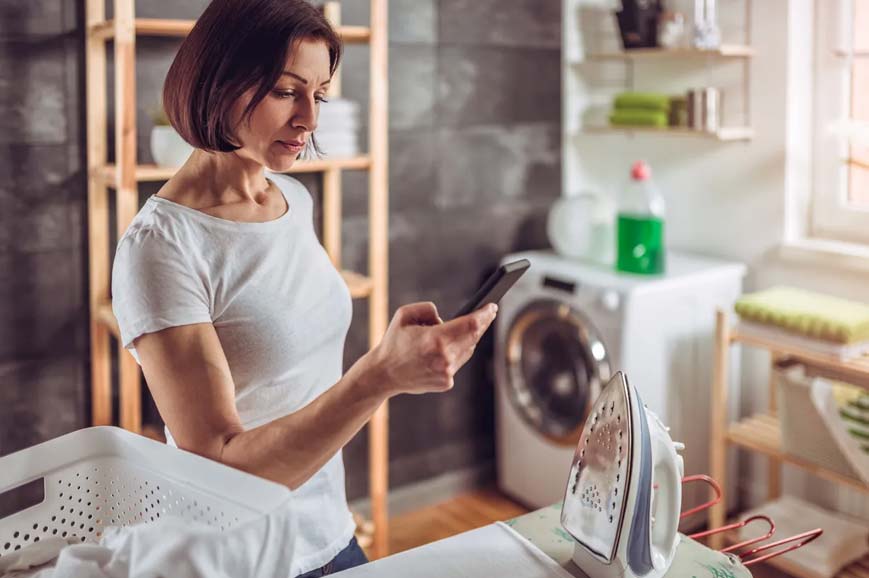How to Handle a Washer That Stops Draining – Dependable Refrigeration & Appliance Repair Service Washing Machine Repair
How to Handle a Washer That Stops Draining – Dependable Refrigeration & Appliance Repair Service Washing Machine Repair
Blog Article
A Comprehensive Check Out DIY Appliance Repair Service for Homeowners
If you've ever encountered a malfunctioning device, you know just how discouraging it can be. Understanding common problems and using the ideal troubleshooting methods can conserve you time and cash. With the right devices and a little bit of knowledge, you could deal with small fixings on your own. Yet when do you understand it's time to contact a specialist? Let's explore the fundamentals of DIY device repair service and what you require to keep your home running smoothly.
Recognizing Common Home Appliance Problems
When your devices begin breaking down, it can really feel frustrating, especially if you're uncertain what the trouble is. Usual concerns often arise with fridges, washing machines, and dryers, and understanding what to try to find can save you time and stress. For instance, if your fridge isn't cooling, inspect the temperature setups or pay attention for uncommon sounds that could show a stopping working compressor.With cleaning devices, leaks usually originate from used hoses or defective door seals. If your clothes dryer isn't heating, a clogged vent might be the perpetrator.
Vital Devices for DIY Services
Having the right tools can make all the difference in your DIY device repair work efforts. Beginning with a reliable toolset that consists of screwdrivers-- both flathead and Phillips-- considering that lots of home appliances make use of these sorts of screws. A durable set of pliers is vital for grasping, twisting, or reducing cables. You'll also desire an outlet set for getting rid of bolts and nuts that hold home appliances together.A multimeter is vital for examining electric links and identifying issues. Don't neglect a level to assure your home appliances rest effectively, as this can influence efficiency. Consider buying a torque wrench for details tightening demands. A good flashlight or job light will certainly help you see into limited or dark spaces. With these tools in hand, you'll be well-equipped to tackle most DIY home appliance repair work with confidence.
Repairing Methods for Home Appliances
Before diving into repairs, it is essential to identify the issue impacting your home appliance. Start by observing any unusual sounds, leaks, or mistake codes. Keep in mind of when the issue takes place-- does it happen throughout specific cycles or under specific problems? This can offer clues.Next, get in touch with the individual guidebook for troubleshooting pointers. Numerous home appliances include a fixing section that may address your issue directly. On-line sources, discussion forums, and videos can also supply useful insights.If you can, do simple tests: for a washing equipment, check if the door latch is engaging correctly; for a refrigerator, see if it's keeping the ideal temperature.Lastly, do not fail to remember to inspect power resources-- ensure your home appliance is connected in and that breaker are functioning. By methodically tightening down the issue, you'll be much better furnished to tackle the repair service effectively.
Step-by-Step Repair Service Guides for Major Devices
While you might feel intimidated by the concept of fixing significant home appliances, adhering to a clear step-by-step guide can make the process manageable. Begin by recognizing the problem-- this might be anything from a refrigerator not cooling down to a cleaning equipment not rotating. As soon as you've determined the issue, collect the necessary tools like screwdrivers, pliers, and a multimeter.Next, consult your device's manual for details instructions and diagrams. This source can be very useful for understanding exactly how to dismantle and reassemble your home appliance securely. Begin the repair service by disconnecting the system and getting rid of any panels or covers. Carefully inspect elements, changing any type of damaged components as needed.After you have actually finished the repair work, reconstruct the device and test it to verify whatever works appropriately. Lastly, maintain a document of your repair services for future referral. With method, you'll obtain self-confidence in taking on much more complex concerns.
Security Tips for Appliance Repair Service
Prior to you start any type of appliance repair, make sure you're furnished with the appropriate individual safety devices like handwear covers and safety and security goggles. Constantly unplug the home appliance or transform off the source of power to stop any mishaps. Staying safe is equally as important as completing the repair service itself.
Personal Protective Tools
When tackling appliance repair work, it is vital to prioritize your safety by wearing the right individual safety tools (PPE) Start with security goggles to secure your eyes from debris and potential sprinkles. Next, put on handwear covers to secure your hands from sharp sides and unsafe materials. Relying on the device, you may likewise need a dirt mask to prevent breathing in dust or fumes. Tough shoes is crucial, as well; choose closed-toe footwear to avoid injuries from hefty things. Ultimately, think about making use of knee pads if you'll be servicing the flooring for extended durations. By furnishing on your own with appropriate PPE, you'll reduce threats and focus on the task at hand, making sure a much safer and extra reliable repair work process.

Source Of Power Measures
Ensuring that an appliance is separated from its power resource is essential for your security during repairs (Washer dryer repair service Dependable Refrigeration). Before you start, disconnect the home appliance or transform off the circuit breaker. This straightforward action prevents electrical shocks or mishaps. Constantly double-check that the power is off using a voltage tester-- do not depend on presumptions! If you're dealing with larger devices, think about making use of a lockout/tagout system to avoid accidental resurgence. Keep your workspace dry and free from mess to decrease threats. Put on insulated gloves and use devices with rubber grasps to give added security. Never ever effort repair services in damp problems, as water and electricity don't mix. By complying with these safety measures, you'll produce a safer environment for your DIY repair task
When to Call a Specialist

Safety Concerns First
Although tackling do it yourself device repair work can be fulfilling, it's vital to acknowledge your limits and focus on safety and security. If you run into any type of indicators of electric problems, like triggers or uncommon scents, stop quickly and call a specialist. Do not attempt repair services entailing gas lines or complex electrical wiring unless you're thoroughly educated. Always disconnect appliances before functioning on them, and use safety gear to protect yourself from potential risks. If you're uncertain concerning a repair service or feel overwhelmed, seeking professional aid is the very best selection. Your security is more vital than conserving a few dollars. Remember, some fixings can result in severe injury or further damages to your appliance if not taken care of properly. Trust your impulses-- when doubtful, connect for expert assistance.
Complicated Fixing Issues
When appliances malfunction past basic problems, it's often best to employ a professional. If your refrigerator isn't cooling down, your cleaning maker will not rotate, or your oven won't heat, these issues can signify more complex problems. Attempting to deal with these by yourself can lead to additional damages or safety threats. You might come across electric troubles, weird sounds, or dripping liquids that require specialized knowledge and devices. If you're uncertain regarding the repair process or lack the necessary expertise, don't think twice to connect for expert help. It can save you time, cash, and the frustration of trial-and-error solutions. Trusting a certified specialist warranties your home appliances are recovered safely and successfully, allowing you to return to your everyday regimen.
Warranty Considerations
Before attempting any fixings, it is necessary to inspect if your home appliance is still under warranty. If it is, you might intend to avoid DIY repair services altogether. Making alterations or opening up the appliance might nullify the service warranty, leaving you in charge of future repair work. Instead, connect to the maker or authorized solution center for specialist help. They typically have educated specialists who can identify and deal with problems rapidly. If your device is out of service warranty and you feel great in your skills, you can continue with do it yourself repair work. Nonetheless, if you're uncertain or face complex issues, calling an expert is typically the much safer option. Keep in mind, buying professional assistance can save you time and avoid additional damage.
Maintaining Your Devices for Longevity
To assure your home appliances serve you well for many years to come, regular maintenance is key. Beginning by cleaning your home appliances frequently; dust and particles can accumulate and impede performance. For fridges, check the door seals and clean the coils to maintain them effective. Wash your cleaning machine's drum and dispensers to avoid mold and mildew and odors.Don' t fail to remember to examine hose pipes and links for leaks or put on. For dish washers, run a cleansing cycle monthly to validate correct drain and remove odors.Keep an eye on any kind of unusual noises or efficiency problems-- addressing these early can avoid pricey repairs down the line (Washer dryer repair service Dependable Refrigeration). Ultimately, describe your appliance manuals for particular maintenance suggestions and advised solution periods. By taking on these practices, you'll not only expand the life of your devices however also boost their performance, saving you money and time over time
Frequently Asked Inquiries
What Appliances Are The Majority Of Typically Fixed by Homeowners?
When it concerns DIY fixings, home owners commonly take on washing equipments, dryers, refrigerators, and dishwashers. You'll find these appliances are most frequently fixed given that they often run into problems and can be workable with basic devices.
How Can I Discover Home Appliance Fixing Components Easily?
You can discover home appliance fixing parts easily by searching on the internet stores, visiting regional equipment stores, or examining supplier websites. Do not fail to remember to have your appliance version number helpful to guarantee you obtain the ideal components.
Are There Online Resources for Do It Yourself Device Repair Work Videos?
Yes, there are plenty of on the internet resources for DIY device fixing videos. YouTube is a wonderful begin, along with sites like RepairClinic and AppliancePartsPros, which use step-by-step guides to assist you repair and repair your appliances.
What Typical Mistakes Should I Stay Clear Of During Repair works?
During repair services, stay clear of hurrying your work, skipping safety precautions, or ignoring to review manuals. Don't presume you understand whatever; request assistance if required. Constantly maintain your office organized to protect against shedding devices or components.
How Can I Inform if a Part Deserves Repairing?
To figure out if a component's worth repairing, analyze its price contrasted to substitute. Examine schedule, convenience of fixing, and whether the home appliance's general value justifies the effort. If repair work cost more, consider changing it instead.
Report this page